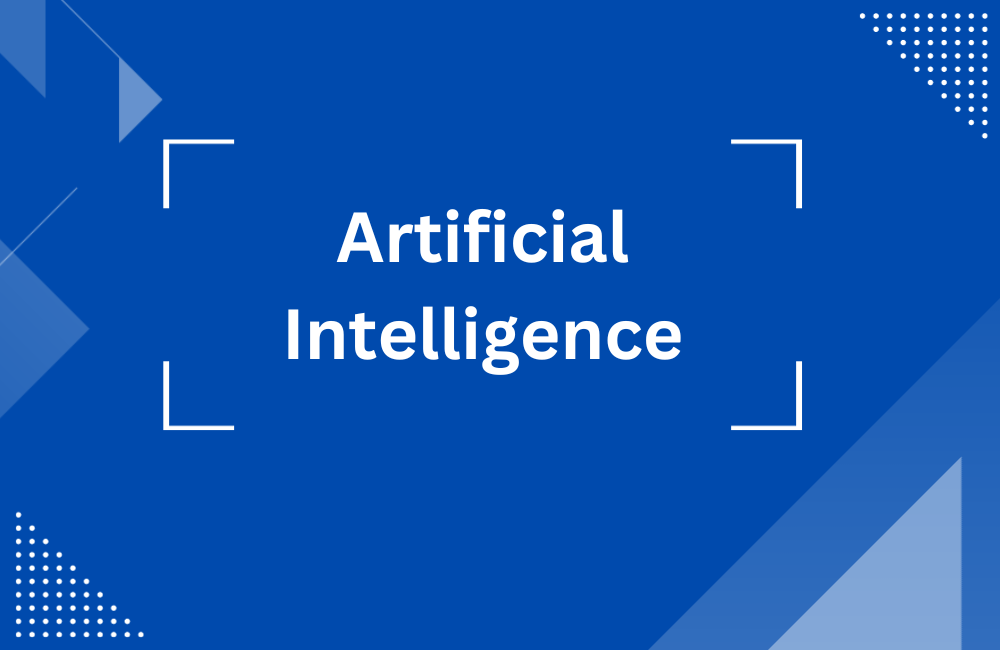Artificial Intelligence

In today’s fast-paced digital landscape, staying ahead in the ever-evolving world of search engine optimization (SEO) is crucial. As the digital realm continues to expand, it becomes increasingly challenging to rank well on Google and other search engines. To outshine your competitors and secure top positions in search results, harnessing the power of artificial intelligence (AI) has become essential. In this article, we delve into the intricacies of AI in SEO and how it can propel your online presence to new heights.
Table of Contents
ToggleUnderstanding the SEO Landscape
Before we plunge into the fascinating realm of AI, let’s take a moment to understand the contemporary SEO landscape. SEO is the art and science of optimizing your website to rank higher on search engine results pages (SERPs). The goal is to increase organic (non-paid) traffic to your site, enhancing its visibility to potential customers and readers.
Traditionally, SEO involves keyword research, on-page optimization, backlink building, and content creation. While these elements are still vital, the advent of AI has revolutionized the way we approach SEO. AI has brought about automation, data analysis, and personalization that were previously unimaginable.
History of Artificial Intelligence
The concept of AI emerged in the mid-20th century. The term “artificial intelligence” was coined by John McCarthy in 1956. Early AI pioneers, including Alan Turing and Marvin Minsky, laid the foundation for AI by developing theoretical frameworks and early computer programs that could simulate human thought processes. The Dartmouth Workshop, organized by John McCarthy and others, is often considered the birthplace of AI.
It brought together computer scientists to explore the possibilities of creating intelligent machines. This event set the stage for AI research and development. During the 1970s and 1980s, AI faced a period known as the “AI Winter.” It was characterized by waning interest and funding due to unmet expectations. AI research encountered challenges in developing practical applications, leading to a temporary decline in enthusiasm.
The Future of AI
The future of AI promises continued innovation. Researchers are exploring quantum computing, robotics, and AI’s role in addressing global challenges like climate change and healthcare. In conclusion, the history of artificial intelligence is a story of persistence and progress. From its inception as a concept to its present-day ubiquity, AI has evolved into a transformative force that continues to shape our world and hold immense potential for the future.
Embracing AI-Powered SEO
1. AI-Powered Keyword Research
One of the most significant advantages of using AI in SEO is its ability to supercharge keyword research. Traditional keyword research could be time-consuming and imprecise. However, AI tools can analyze vast amounts of data in seconds, identifying the most relevant and high-converting keywords for your niche. This not only saves time but also ensures that your content targets the right audience.
2. Content Generation and Optimization
AI-driven content generation tools have gained immense popularity in recent years. These tools can create human-like content, making it easier for website owners to maintain a consistent publishing schedule. Additionally, AI can assist in optimizing content for SEO by analyzing factors such as keyword density, readability, and relevance.
3. User Experience Enhancement
Google considers user experience a critical ranking factor. AI can help enhance user experience by analyzing user behavior and making real-time website adjustments. For instance, chatbots powered by AI can provide instant customer support, while AI algorithms can personalize content recommendations based on user preferences and browsing history.
4. Voice Search Optimization
With the rise of voice-activated devices like Siri and Alexa, voice search optimization has become imperative. AI can help businesses adapt to this trend by optimizing content for voice search queries, which tend to be more conversational and long-tail.
The Future of AI in SEO
As man-made intelligence keeps on advancing, its part in Website design enhancement will turn out to be progressively noticeable. Here are a few invigorating improvements not too far off:
1. AI-Generated Video Content
Video content is gaining traction in SEO, and AI is poised to revolutionize this medium. AI algorithms can automatically generate video content, add subtitles, and optimize it for search engines, making video marketing more accessible for businesses of all sizes.
2. Predictive SEO Analytics
AI can analyze vast datasets to make predictions about future SEO trends. By identifying emerging keywords and content topics, businesses can stay one step ahead of the competition and create content that meets evolving user needs.
3. AI-Enhanced Local SEO
For businesses with physical locations, AI can play a pivotal role in local SEO. It can analyze local search patterns, customer reviews, and location-specific data to help businesses optimize their online presence and attract more foot traffic.
Conclusion
In conclusion, the integration of AI into SEO practices has opened up new possibilities for businesses striving to achieve higher rankings on Google and other search engines. From streamlining keyword research to enhancing user experiences and predicting future SEO trends, AI is reshaping the SEO landscape.
To maintain a competitive edge in the digital realm, it’s imperative to embrace AI-powered SEO tools and strategies. As AI technology continues to advance, staying up-to-date with the latest developments is essential for any website owner or digital marketer. In the era of AI, the future of SEO is bright, promising increased efficiency and effectiveness in reaching your online audience.
Graham Jackson, a seasoned sports enthusiast, possesses an unparalleled depth of knowledge in the realm of sports and games. With a keen understanding of various disciplines, he combines passion with expertise, making him a go-to source for insightful analysis and engaging discussions in the world of athletics.
Recommended For You
Spread the loveInstagram is a visually driven platform, and understanding how aspect ratios work can significantly impact the success of
Spread the loveHave you ever received a call from an unknown number, and upon searching online, found nothing but dead
Spread the loveOverview of U231748506 Welcome to U231748506, your comprehensive guide to the predictions and trends shaping 2024. As we






